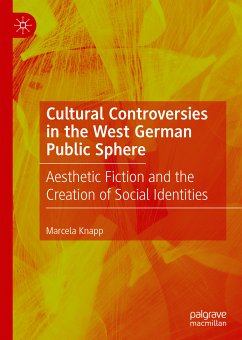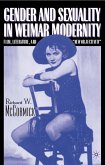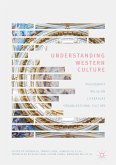This work is part of a field of research that deals with the aesthetics of the everyday and the idea of social aesthetics. It argues for a central role for the arts in the creation and formation of modern society. Social identities emerge in response to aesthetic-sensual patterns of perception.
Focusing on five West German public debates in the years 1950 to 1990, this work sheds light upon the transformation of social reality through the discursive adaption of art.
Dr. Marcela Knapp is a cultural sociologist. She lives and works in Berlin.
Dieser Download kann aus rechtlichen Gründen nur mit Rechnungsadresse in A, B, BG, CY, CZ, D, DK, EW, E, FIN, F, GR, HR, H, IRL, I, LT, L, LR, M, NL, PL, P, R, S, SLO, SK ausgeliefert werden.









